


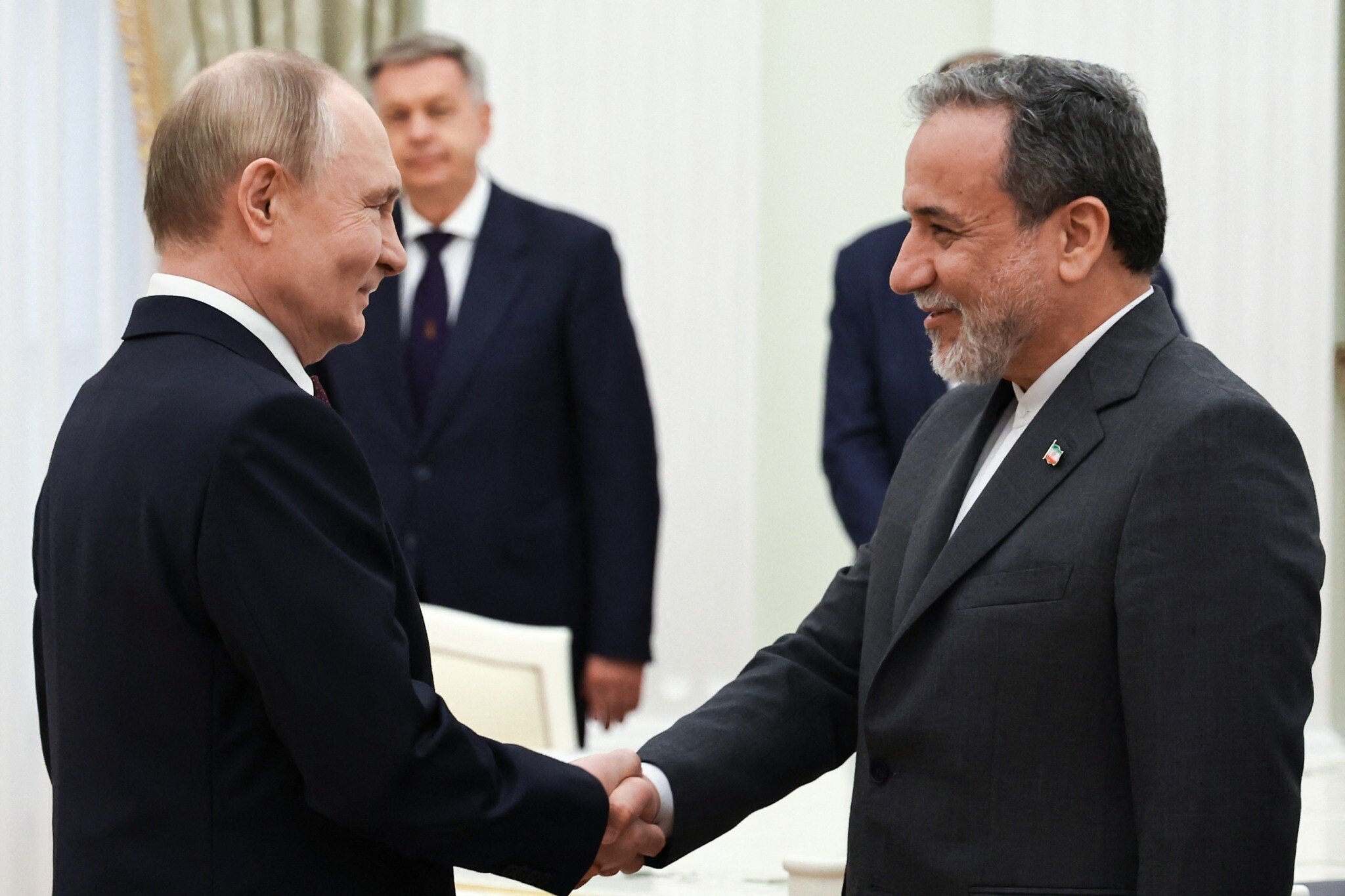
Russian President Vladimir Putin reportedly told US President Donald Trump and Iranian officials that he supports the idea of a nuclear deal in which Iran is unable to enrich uranium.
The communications between Putin and both Iranian and American leaders about enrichment was reported Saturday by US news site Axios, citing sources familiar with the discussions.
According to the report, the Russian leader pushed Iran to agree to “zero enrichment,” with one European official telling the outlet that Putin “encouraged the Iranians to work toward that to make negotiations with the Americans more favorable.”
However, the official added, “The Iranians said they won’t consider it.”
The issue of enrichment has been one of the main obstacles to a nuclear deal, and the Islamic Republic has insisted on being able to enrich uranium on its soil, while both the US and Israel have demanded that Tehran completely give up this capability.
After the Axios report, Iran’s Foreign Minister Abbas Araghchi told diplomats in Tehran that any new nuclear deal must respect what he claimed was its right under the Non-Proliferation Treaty to enrich uranium for peaceful purposes.
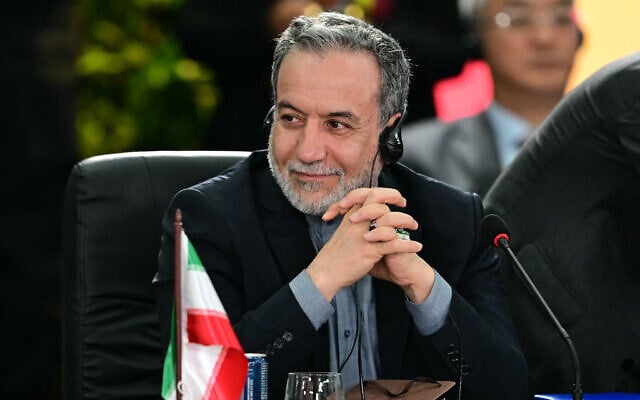
“I would like to emphasize that in any negotiated solution, the rights of the Iranian people on the nuclear issue, including the right to enrichment, must be respected,” Araghchi said. “We will not have any agreement in which enrichment is not included.”
Despite his rejection of any deal that bars enrichment, Araghchi did say Iran is considering the possible resumption of nuclear talks with the Americans, after they had been paused for over a month due to their 12-day war against Israel.
“We are examining its timing, its location, its form, its ingredients, the assurances it requires,” Araghchi said.
Tehran’s top diplomat added that any talks with major powers would focus only on Iran’s nuclear activities, not military capabilities like its ballistic missile arsenal.
“If negotiations are held… the subject of the negotiations will be only nuclear and creating confidence in Iran’s nuclear program in return for the lifting of sanctions,” he insisted. “No other issues will be subject to negotiation.”
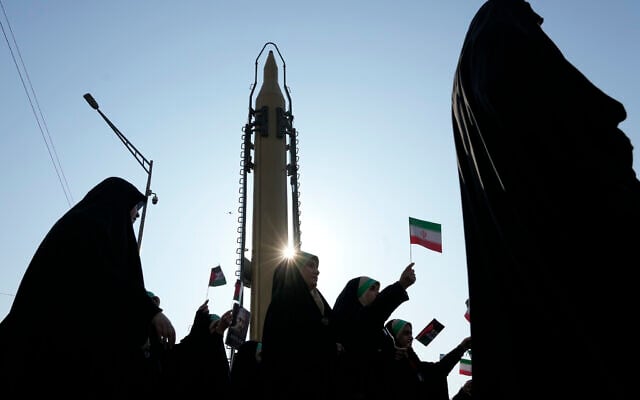
Araghchi also said that Iran’s cooperation with the International Atomic Energy Agency “has not stopped, but will take on a new form,” after the Islamic Republic formally ended cooperation with the UN watchdog in early July.
Araghchi said requests to monitor nuclear sites “will be reviewed on a case-by-case basis… taking into account safety and security issues,” and be managed by Iran’s Supreme National Security Council.
Before agreeing to any new meeting with the IAEA, “we are examining its timing, its location, its form, its ingredients, the assurances it requires,” said Araghchi, who also serves as Iran’s lead negotiator.
He said that any talks would focus only on Iran’s nuclear activities, not its military capabilities.
“If negotiations are held… the subject of the negotiations will be only nuclear and creating confidence in Iran’s nuclear program in return for the lifting of sanctions,” he told diplomats in Tehran.
“No other issues will be subject to negotiation.”
Additionally, Araghchi warned that a so-called snapback of UN sanctions against Iran”would signify the end of Europe’s role in the Iranian nuclear dossier.”
A clause in the 2015 nuclear agreement between Iran and world powers allows for UN sanctions to be reimposed in the event Tehran breaches the deal.
Israel launched a sweeping assault on Iran’s top military leaders, nuclear scientists, uranium enrichment sites, and ballistic missile program on June 13, saying the operation was necessary to prevent Tehran from realizing its avowed plan to destroy Israel.
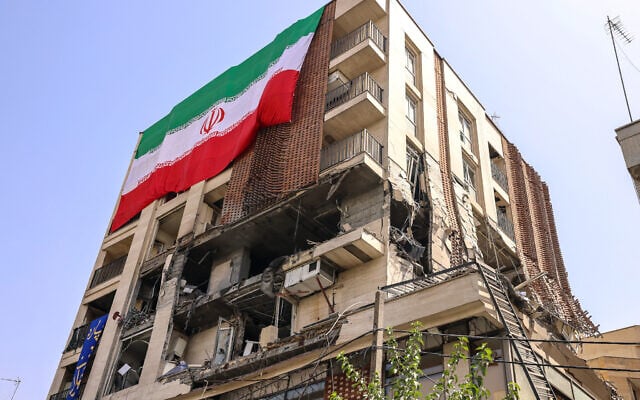
Though Iran denies seeking nuclear weapons, it enriched uranium to 60 percent — far beyond what is needed for civilian use, and a short step away from weapons-grade. Israel says Iran recently took steps toward weaponization.
Iran retaliated to Israel’s strikes by launching over 500 ballistic missiles and around 1,100 drones at Israel. The attacks killed 28 people and wounded over 3,000 in Israel, according to health officials and hospitals. In all, there were 36 missile impacts and one drone strike in populated areas, causing damage to 2,305 homes in 240 buildings, along with two universities and a hospital, and leaving over 13,000 Israelis displaced.
For the nine weeks prior to the war, Iran and the US had engaged in a series of near-weekly talks, mostly held in Oman, to reach an agreement over Tehran’s nuclear program.
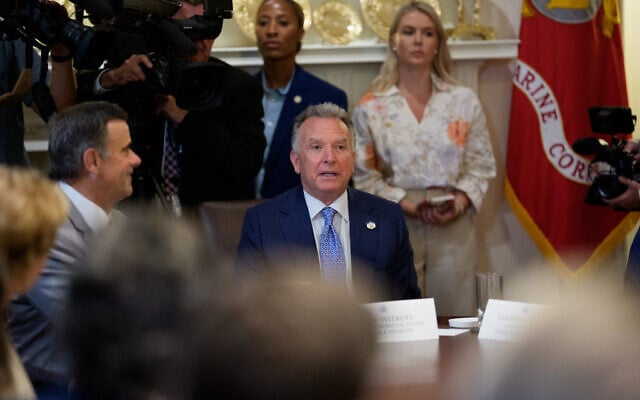
Iran has signaled that it is willing to restart the talks, with Araghchi saying that the two enemy countries were “on the cusp of a historic breakthrough” before the war with Israel.
“In only five meetings over nine weeks, US special envoy Steve Witkoff and I achieved more than I did in four years of nuclear negotiations with the failed Biden administration,” he said earlier this week.
For his part, Witkoff said Tuesday that the two sides will resume talks “in the next week or so,” but Trump was ambivalent about their necessity, saying he doesn’t completely see a purpose for them.
“But [the Iranians] requested a meeting, and I’m going to go to a meeting, and if we can put something down on paper, that will be fine,” Trump said.
